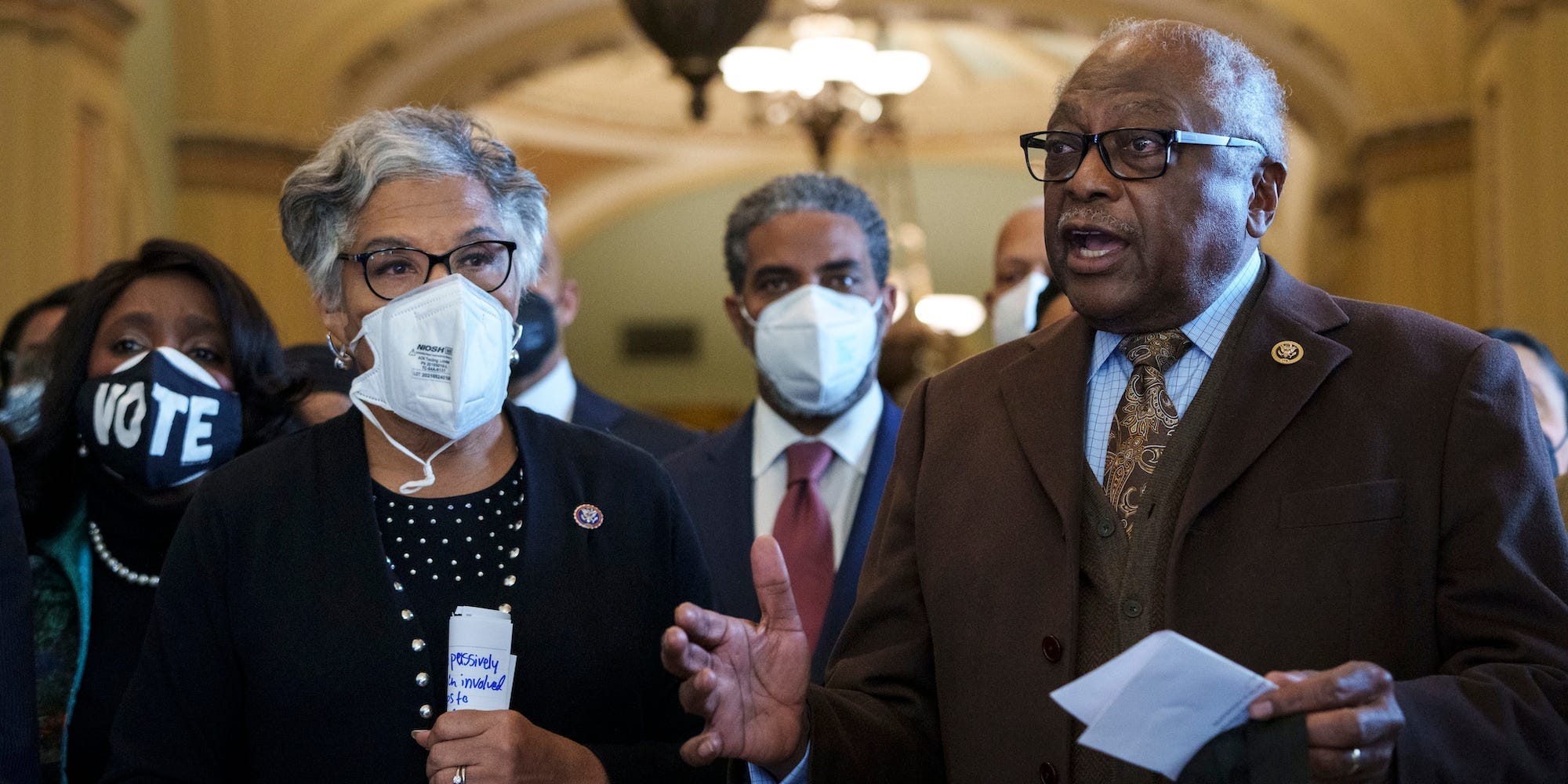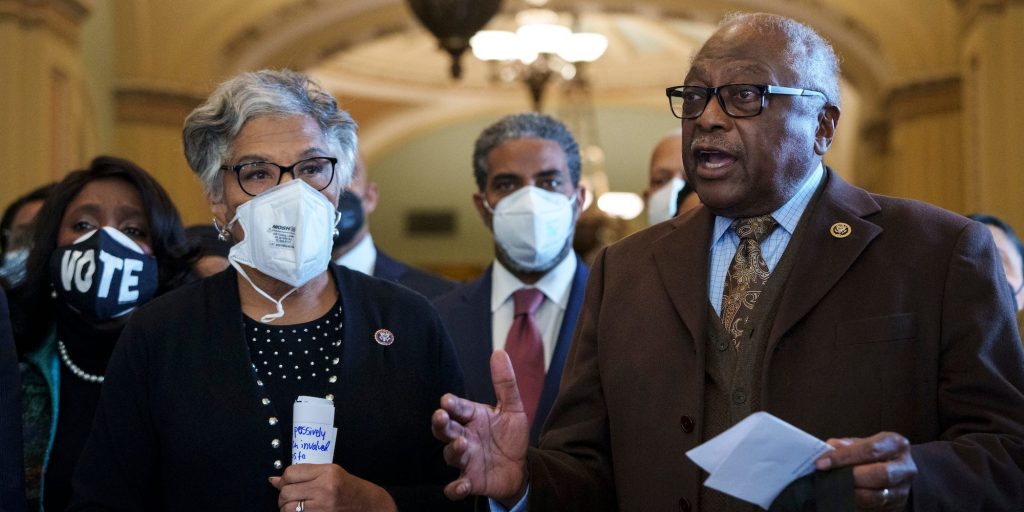
- Black Democrats are vowing to press on with passing landmark voting rights protections.
- Voting rights legislation and an effort to change the filibuster is headed for near-certain defeat.
- "We will continue to come back," said Rep. Joyce Beatty. "And like in history, we will get progress."
Black Democrats are vowing to continue pushing landmark voting rights protections, despite major voting rights legislation headed for a near-certain defeat in the US Senate on Wednesday night.
A group of members of the Congressional Black Caucus marched from the House of Representatives to the Senate side of the US Capitol as Senators debated The Freedom to Vote: John R. Lewis Act, a sweeping voting rights and democracy reform bill that would expand voting access throughout the US and refortify key components of the Voting Rights Act of 1965.
The Senate, divided between 50 Democrats and 50 Republicans, will vote Wednesday night to end debate on the bill, which is poised to fall short of the 60 votes required to conclude debate under the current Senate filibuster rules.
Senate Majority Leader Schumer is then expected to hold a vote on changing the Senate's filibuster rules with a simple majority. That vote is also set to fail because two key Democrats, Sen. Joe Manchin and Sen. Kyrsten Sinema, oppose weakening the Senate filibuster rules.
Rep. Joyce Beatty of Ohio, the chairwoman of the Caucus, invoked civil rights heroes including Martin Luther King Jr., John Lewis, for whom the bill is partly named, and Fannie Lou Hamer. In 1965, as King, Lewis, Hamer, and others marched through Alabama for voting rights, they were violently thwarted by law enforcement as they attempted to cross the Edmund Pettus Bridge in Selma.
"Certainly you will remember when Martin and John and Fannie Lou Hamer, and so many others, went to cross that bridge with all the intentions on that first march to cross it. But if it wasn't meant to be and it wasn't the right time, they turned around, but they didn't give up," she said. "It was just another step in progress. So we come in that same light today, of when the hour of the vote to tell you that our plan is that we will continue to come back. And like in history, we will get progress."
Beatty said she would "absolutely" consider more legislative action in the House of Representatives, which passed several voting rights and democracy reform bills in 2021.
"And certainly we have talked, in full disclosure, about that. There are parts of the bill that are very important to us individually and collectively," Beatty said. "So let me just say, we will come back again today. It's just our first step. We will come back with a clear plan."
Majority Whip James Clyburn of South Carolina cited the history of the Civil Rights Act, noting that it took multiple attempts to pass comprehensive voting rights and housing discrimination protections through Congress.
"Let me remind you that when the Civil Rights Act of 1964 was first written, they did not get it through the Congress. They couldn't get it. Everett Dirksen, one of my favorite of all times, finally worked with Lyndon Johnson, another one of my favorites of all times, and they took voting out in order to get it passed," he said, adding that civil rights activists didn't get voting protections passed until the next year.
"So I want everybody to know: we want this Senate to act today in a favorable way," Clyburn said. "But if it don't, we ain't given up and I'm too young to give out."

